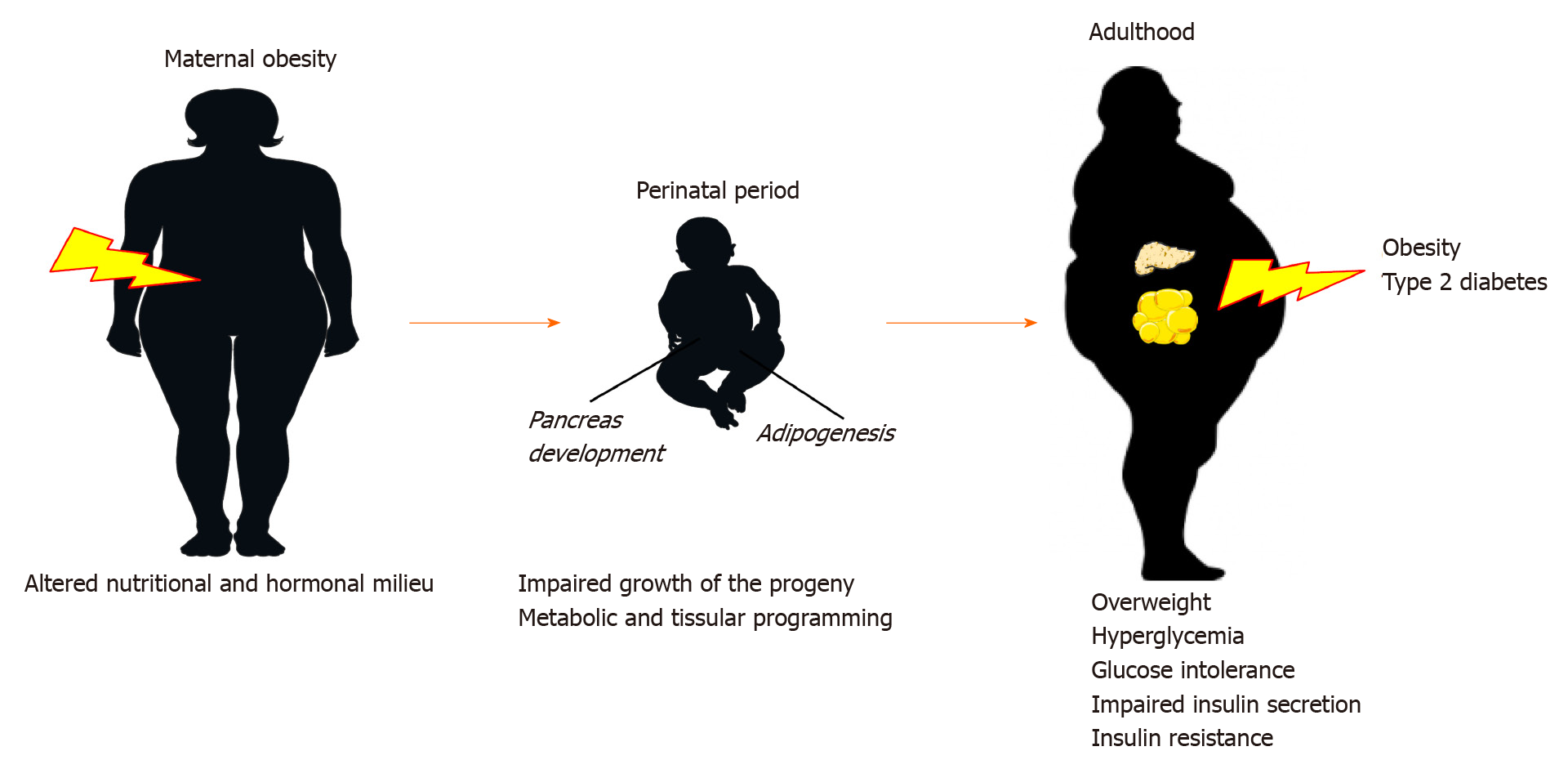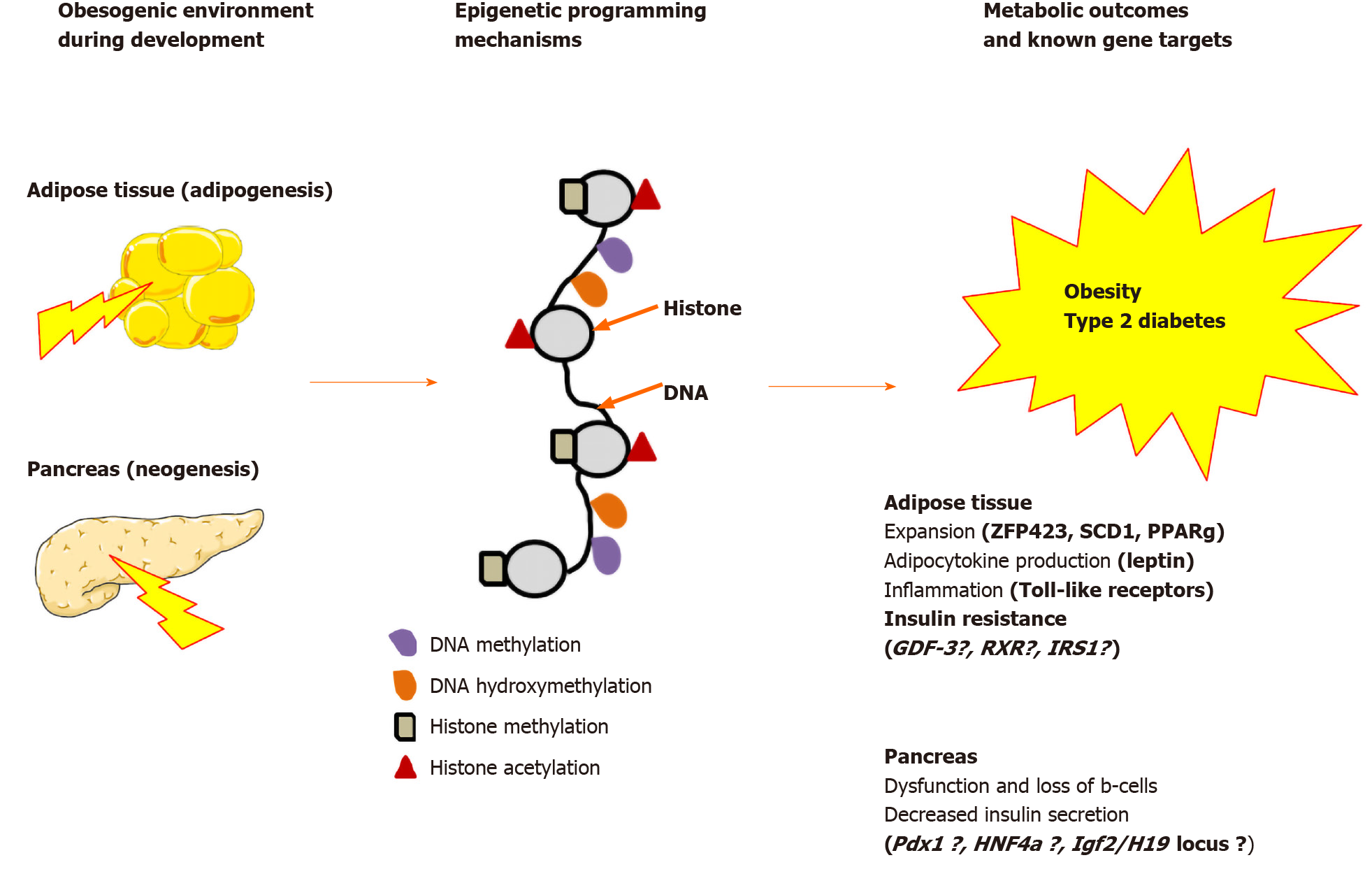©The Author(s) 2021.
World J Diabetes. Apr 15, 2021; 12(4): 366-382
Published online Apr 15, 2021. doi: 10.4239/wjd.v12.i4.366
Published online Apr 15, 2021. doi: 10.4239/wjd.v12.i4.366
Figure 1 Maternal obesity and the developmental origin of health and disease concept.
Maternal obesity results in impaired growth of offspring during fetal and perinatal period as well as metabolic and tissue programming. These developmental changes may have long-term consequences in the susceptibility to obesity and type 2 diabetes later in life.
Figure 2 Epigenetic programming mechanisms and offspring gene targets.
Gene targets with epigenetic modifications in the offspring of obese mothers are indicated. Gene targets indicated with a question mark have been evidenced by maternal nutritional manipulations other than maternal obesity. ZFP423: Zinc finger protein 423; SCD1: Stearoyl-coenzyme A desaturase 1; PPAPγ: Peroxisome proliferator-activated receptor γ; GDF-3: Growth differentiation factor 3; RXR: Retinoid-X-receptor; IRS1: Insulin receptor substrate-1; HNF4α: Hepatocyte nuclear factor 4 α; Igf2: Insulin-like growth factor-2.
- Citation: Lecoutre S, Maqdasy S, Breton C. Maternal obesity as a risk factor for developing diabetes in offspring: An epigenetic point of view. World J Diabetes 2021; 12(4): 366-382
- URL: https://www.wjgnet.com/1948-9358/full/v12/i4/366.htm
- DOI: https://dx.doi.org/10.4239/wjd.v12.i4.366














